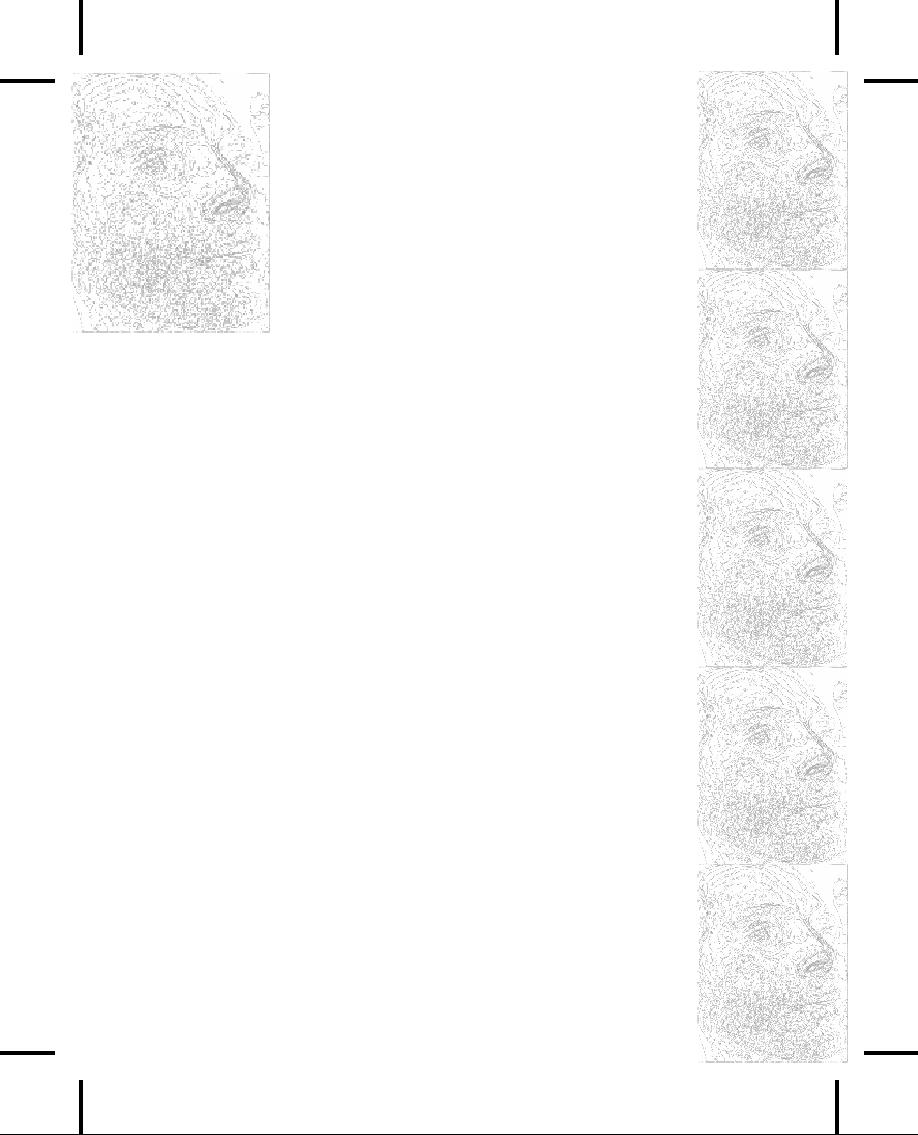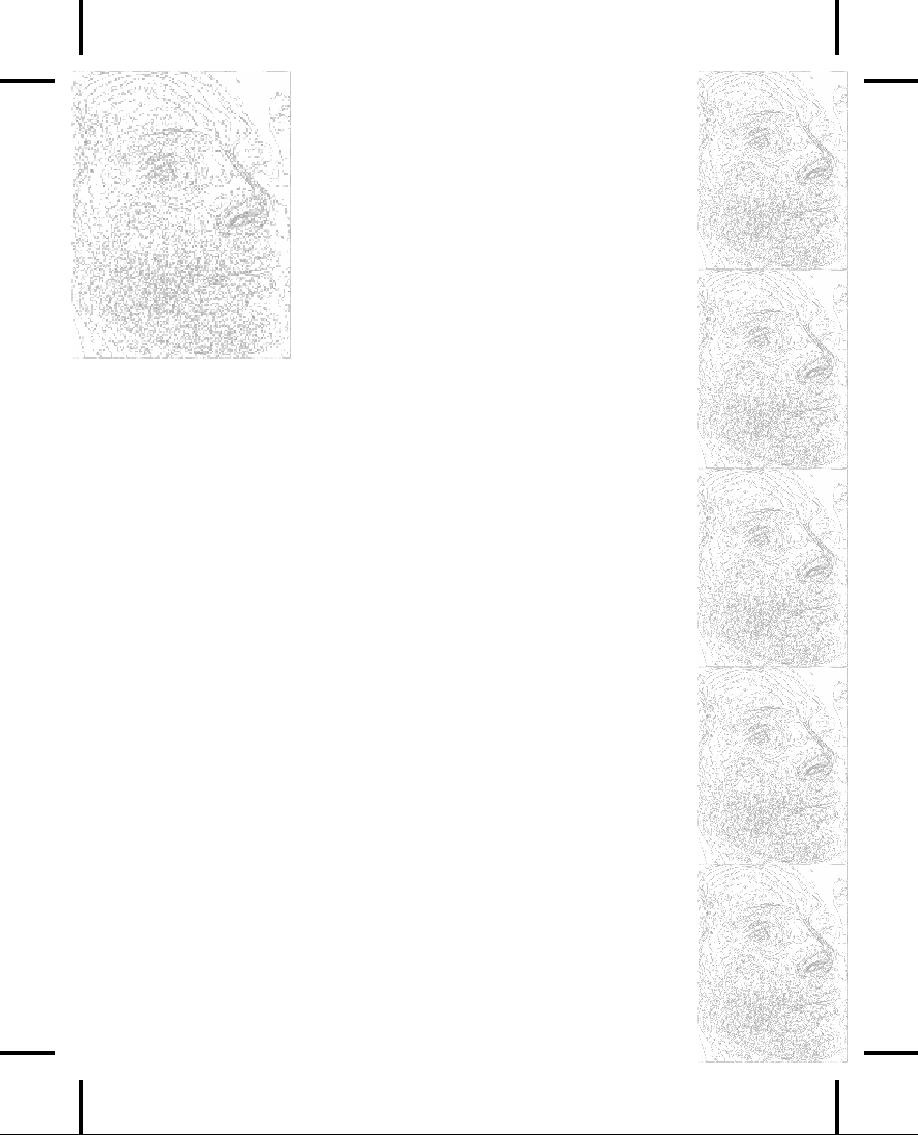 |
Index |
| << C: Recommended Reading:Depth & dark corners, Analysis & design |

Index
- �
156, 163
<< � 160;
overloading for iostreams �
518
-- �
164
<<=
� 160
!
� 163
<=
� 158
!=
� 158
=
� 166; operator; as a private function
�
#,
preprocessor stringize operator �
196
533;
automatic creation � 532;
operator,
#define
� 194, 245, 335, 353
as
a private function � 709; overloading
�
#endif
� 245, 757
521
#ifdef
� 194, 245
==
� 158, 166
#ifndef
� 246
>
� 158
#include
� 85
->:
overloading the smart
pointer operator
#undef
� 194
�
509; struct member selection
via
$<,
in makefiles � 206
pointer
� 178
%
� 156
->*,
overloading � 514
&
� 134, 164
>=
� 158
&&,
logical and
�
158
>>
� 160; iostreams; operator � 106;
&,
bitwise and
�
159
overloading
� 518
>>=
� 160
&=
bitwise � 160
(
), overloading the function
call operator �
514
A
*
� 156; overloaded operator � 727,
730;
pointer
dereference � 136
-,
with pointers � 192
abort(
) � 409
--,
with pointers � 192
abstract:
base classes and pure
virtual
.
member selection operator �
237
functions
� 646; data type � 129,
239
...
variable argument list �
114; varargs �
abstraction
� 22
243
access:
control � 260; run-time � 275;
/
� 156
function
� 379; specifiers � 29, 261; and
::
� 232, 429; scope resolution operator,
and
object
layout � 269; order for �
263
namespaces
� 417
accessors
� 380
?:
ternary if-else � 164
actor,
in use cases � 50
[
]: array indexing � 105;
overloaded
addition
(+) � 156
indexing
operator � 519, 698
address:
const � 339; each object must
have
^
bitwise exclusive-or �
159
a
unique address � 241; element �
134;
^=
bitwise � 160
function
� 198, 391; memory � 133; object
|,
bitwise or
�
159
�
265; pass as const references �
473;
||,
logical or
�
158
passing
and returning with const �
349;
|=
bitwise � 160
struct
object � 178
~
bitwise not/ones
complement � 159
address-of
(&) � 164
~,
destructor � 287
aggregate
� 105; const aggregates � 337;
+
� 156, 163; with pointers �
192
initialization
� 201, 301; and structures �
++
� 164; with pointers �
190
302
<
� 158
aggregation
� 30
823

for
arrays � 573; pointers and �
184;
algorithms,
Standard C++ Library �
742
static
� 692; static initialization �
425
aliasing:
namespace � 415; solving with
asctime(
) � 384
reference
counting and copy-on-write
�
assembly-language:
asm in-line assembly-
527
language
keyword � 173; CALL � 458;
Allison,
Chuck � 2, 776
code
for a function call � 456;
code
allocation:
dynamic memory allocation
�
generated
by a virtual function � 642;
223,
548; memory, and efficiency �
566;
RETURN
� 458
storage
� 292
assert(
): macro in Standard C � 197, 223,
alternate
linkage specification �
442
396
ambiguity
� 244; during automatic
type
assignment
� 156, 301; disallowing � 533;
conversion
� 540; with namespaces �
420
memberwise
� 532, 600; operator � 505;
analysis:
and design, object-oriented �
44;
overloading
� 521; pointer, const
and
paralysis
� 45; requirements analysis �
non-const
� 343; self-assignment in
48
operator
overloading � 523
and:
& bitwise � 159, 166; && logical �
158,
166;
&& logical and
�
173
assure(
) � 757; from require.h �
237
and_eq,
&= (bitwise and-assignment)
� 173
atexit(
) � 409
atof(
) � 188, 189
anonymous
union � 320
atoi(
) � 188
ANSI
Standard C++ � 14
atol(
) � 188
argc
� 187
auto
keyword � 149, 414
arguments:
argument-passing guidelines �
auto-decrement
operator � 128
455;
command line � 187, 252; const
�
auto-increment
operator � 106, 128
344;
constructor � 286; default � 310,
311,
automatic:
counting, and arrays �
301;
321;
argument as a flag � 329;
destructor
creation
of operator= � 532; destructor
�
287; empty argument list, C
vs. C++ �
calls
� 297; type conversion � 228, 533;
114;
function � 81, 138; indeterminate
pitfalls
� 539; preventing with
the
list
� 114; macro � 374; mnemonic
names
keyword
explicit � 534; variable � 42,
�
83; name decoration � 312;
overloading
149,
153
vs.
default arguments � 324; passing
�
450;
placeholder � 323; preferred
approach
to argument passing � 351;
B
references
� 451; return values,
operator
overloading
� 505; trailing and defaults
�
322;
unnamed � 114; variable
argument
backslash
� 95
list
� 114, 243; without identifiers �
323
backspace
� 95
argv
� 187
bad_alloc
� 572
arithmetic,
pointer � 190
base:
abstract base classes and
pure virtual
array
� 182; automatic counting � 301;
functions
� 646; base-class interface �
bounds-checked,
using templates � 697;
633;
fragile base-class problem �
276;
calculating
size � 302; definition,
types
� 32; virtual keyword in
derived-
limitations
� 338; indexing, overloaded
class
declarations � 632
operator
[] � 698; initializing to zero �
basic
concepts of object-oriented
301;
inside a class � 353; making
a
programming
(OOP) � 22
pointer
look like an array � 564;
new &
BASIC
language � 68, 77
delete
� 563; of pointers � 187; of
Beck,
Kent � 779
pointers
to functions � 201; off-by-one
behavior
� 219
error
� 301; overloading new and
delete
binary
operators � 160; examples of
all
overloaded
� 493; overloaded � 487
824

problems
in old code � 70;
function
binding:
dynamic binding � 631; early �
38,
library
� 116; fundamentals � 112;
heap �
644;
function call binding � 631, 641;
late
550;
hole in the type system,
via void* �
�
38, 631; run-time binding �
631
450;
ISO Standard C � 14; libraries �
89,
bit
bucket � 162
bitand,
& (bitwise and) �
173
219;
linkage � 338; linking compiled
C
code
with C++ � 442; name
collisions �
bitcopy
� 468
68;
operators and their use �
156;
bitcopy,
vs. initialization �
460
bitor,
| (bitwise or) �
173
passing
and returning variables
by
value
� 455; pitfalls � 227; preprocessor
�
bit-shifting
� 162
bitwise:
and
operator
& � 159, 166; const �
334;
safety hole during linking �
314;
362;
exclusive-or, xor
^ � 159;
explicit
Standard
library function; abort( ) �
409;
bitwise
and logical operators � 173;
not
atexit(
) � 409; exit( ) � 409; Thinking in
C
~
� 159; operators � 159; or
operator |
�
CD
ROM � 776
C++:
automatic typedef for struct
and
159,
166
class
� 231; C compatibility � 235; C
bloat,
code � 391
programmers
learning C++ � 628;
block:
access � 269; and storage
allocation �
cfront,
original C++ compiler �
237;
292;
definition � 289
compiling
C � 305; converting from C to
Booch,
Grady � 779
C++
� 230, 760; data � 129; difference
book:
design & production � 18;
errors,
with
C when defining variables �
145;
reporting
� 16
efficiency
� 66; empty argument list,
C
bool
� 125, 195
vs.
C++ � 114; explicit casts �
167;
Boolean
� 117, 158, 163; algebra � 159;
and
finding
C errors by recompiling in
C++
floating
point � 159; bool, true and
false
�
314; first program � 90; GNU
Compiler
�
131
�
71; hybrid object-oriented
language,
bounds-checked
array, with templates
�
and
friend � 269; implicit
structure
697
address
passing � 231; linking
compiled
break,
keyword � 122
C
code with C++ � 442; major
language
bucket,
bit � 162
features
� 682; meaning of the
language
bugs:
common pitfalls with
operators �
name
� 129; object-based C++ � 628;
one
166;
finding � 292; from casts � 168;
with
definition
rule � 244; operators and
their
temporaries
� 348
use
� 156; programming guidelines �
built-in
type � 129; basic � 129; initializer
for
760;
Standard C++ � 14;
Standards
a
static variable � 408;
Committee
� 14; strategies for
transition
pseudoconstructor;
calls for � 589; form
to
� 68; stricter type checking �
227;
for
built-in types � 381
strongly
typed language � 450; why it
byte
� 133
succeeds
� 64
calculating
array size � 302
C
CALL,
assembly-language � 458
calling
a member function for an
object �
239
C
� 289; #define � 340; backward
calloc(
) � 223, 550, 554
compatibility
� 73; C programmers
Carolan,
John � 277
learning
C++ � 628; C++ compatibility
�
Carroll,
Lewis � 277
235;
compiling with C++ � 305;
concepts
case
� 124
�
2; const � 338; converting from C
to
cassert
standard header file �
197
C++
� 230, 760; difference with
C++
cast
� 40, 135, 164, 276, 552, 630; C++
when
defining variables � 145;
empty
explicit
casts � 167; casting
away
argument
list, C vs. C++ � 114;
finding
825

overloading
operator= � 524; static
class
constness
� 363; casting void pointers
�
objects
inside functions � 408; static
data
235;
const_cast � 170; explicit cast
for
members
� 423; static member
functions
upcasting
� 681; explicit keyword � 678;
�
429; templates � 742; using const
with �
operators
� 166; pointer assignment �
352
343;
reinterpret cast � 171; static_cast
�
class-responsibility-collaboration
(CRC)
169
cards
� 52
cat,
Cheshire � 277
cleanup
� 227, 666; automatic destructor
catch
clauses � 572
calls
with inheritance and
composition �
CD
ROM: seminars on CD-ROM
from
592;
initialization and cleanup on
the
MindView
� 16; Thinking in C,
heap
� 548
Foundations
for Java & C++
(packaged
client
programmer � 28, 260
with
book) � 2, 15, 112
code:
assembly for a function call
� 456;
cfront,
original C++ compiler �
237
bloat
� 391; comment tags in listings
�
chapter
overviews � 7
750;
consulting, mentoring, and
design
char
� 96, 130, 132; sizeof � 173
and
code walkthroughs
from
character
� 154; array literals � 343;
MindView
� 16; generator � 79;
character
array concatenation � 96;
organization
� 248; header files � 244;
constants
� 155
program
structure when writing code
�
characteristics
� 219
93;
re-use � 583; source availability �
12;
check
for self-assignment in
operator
table-driven
� 201
overloading
� 505
collection
� 510, 719
Cheshire
cat � 277
collector,
garbage � 42
cin
� 97
collision,
linker � 244
clashes,
name � 229
comma
operator � 165, 508
class
� 25, 76, 271; abstract base classes
and
command
line � 252; arguments �
187
pure
virtual functions � 646;
adding
comment
tag: for linking � 148; in
source-
new
virtual functions in the
derived
code
listings � 750
class
� 652; aggregate initialization �
302;
comments,
makefile � 204
class
definition and inline
functions �
committee,
C++ Standards � 14
378;
compile-time constants inside
�
common
interface � 647
353,
356, 358; composition, and
copy-
compaction,
heap � 225
constructor
� 469; const and enum in
�
compatibility:
C & C++ � 235; with C � 98
353;
container class templates
and
compilation:
needless � 276; process � 79;
virtual
functions � 743; creators � 28;
separate
� 78; separate, and make �
202
declaration
� 277; of a nested friend
compile
time constants � 335
class
� 514; defining the interface �
62;
compiler
� 76, 77; creating default
definition
� 277; difference between a
constructor
� 304; original C++
compiler
union
and a class � 319; duplicate
class
cfront
� 237; running � 95; support � 15
definitions
and templates � 699;
fragile
compiling
C with C++ � 305
base-class
problem � 276; generated by
compl,
~ ones complement �
173
macro
� 594; generated classes
for
complicated:
declarations & definitions �
templates
� 699; handle class � 275;
199;
expressions, and
operator
inheritance;
and copy-constructor � 471;
overloading
� 488
diagrams
� 617; initialization,
composite:
array � 182; type creation �
174
memberwise
� 471; instance of � 24;
composition
� 30, 584, 607; combining
keyword
� 31; local � 428; nested � 428;
composition
& inheritance � 591; copy-
iterator
� 512, 721; overloading new
and
constructor
� 469; member object
delete
for a class � 570; pointers
in, and
826

inheritance
� 665; order of constructor
initialization
� 589; vs. inheritance � 604,
calls
� 663; and destructor calls �
592;
620,
740
overloading
� 310, 319; private � 709;
concatenation,
character array � 96
pseudo-constructor
� 562; return value �
concept,
high � 48
287;
tracking creations and
destructions
conditional
operator � 164
�
709; virtual functions & constructors
�
conditional,
in for loop � 121
662
const
� 153, 334; address of � 339;
consulting,
mentoring, and design
and
aggregates
� 337; casting away � 363;
code
walkthroughs from MindView
�
character
array literals � 343;
compile-
16
time
constants in classes � 356;
const
container
� 510, 719; container class
reference
function arguments � 351;
templates
and virtual functions �
743;
correctness
� 367; enum in classes � 353;
delete
� 671; iterators � 690; new,
delete,
evaluation
point of � 337; extern � 339;
and
containers � 692; ownership � 555,
function
arguments and return values
�
671,
713; polymorphism � 738; Standard
344;
in C � 338; initializing data
C++
Library � 104; vector �
102
members
� 355; logical � 362; member
context,
and overloading � 310
function
� 352; and objects � 359;
continuation,
namespace � 415
mutable
� 362; pass addresses as
const
continue,
keyword � 122
references
� 473; pointer to const � 171;
control:
access � 29, 260; run-time � 275;
pointers
� 340; reference � 345, 453; and
access
specifiers � 261; expression,
used
operator
overloading � 505; return by
with
a for loop � 106
value
as const � 345; and
operator
controlling:
execution � 117; linkage �
412
overloading
� 507; safety � 336;
conversion:
automatic type conversion
�
temporaries
are automatically const
�
533;
narrowing conversions � 170;
347
pitfalls
in automatic type conversion
�
const_cast
� 170
539;
preventing automatic
type
constant
� 153; character � 155; compile-
conversion
with the keyword explicit
�
time
� 335; inside classes � 358; folding
�
534;
to numbers from char* �
188
335,
339; named � 153; templates,
converting
from C to C++ � 230,
760
constants
in � 703; values � 154
copy-constructor
� 432, 450, 455, 463, 508,
constructor
� 285, 548, 551, 665; arguments
657,
730; alternatives � 471;
composition
�
286; automatic type conversion �
534;
�
469; default � 468; inheritance �
471;
behavior
of virtual functions
inside
private
� 471, 709; upcasting and
the
constructors
� 664; copy-constructor �
copy-constructor
� 617; vs. operator= �
432,
450, 455, 463, 657; alternatives to �
521
471;
vs. operator= � 521; creating a
new
copying
pointers inside classes �
524
object
from an existing object �
462;
copy-on-write
(COW) � 527
default
� 304, 327, 408, 470, 563;
copyright
notice, source code �
12
inheritance
� 663; synthesized by the
correctness,
const � 367
compiler
� 304; doesn't automatically
costs,
startup � 71
inherit
� 600; efficiency � 663; global
counting:
automatic, and arrays �
301;
object
� 410; initialization and
cleanup
reference
� 526
on
the heap � 548; initializer
list � 353,
cout
� 90, 91
589,
664; pseudoconstructors � 589;
cover
design, book � 17
inline
� 392; installing the VPTR �
643;
CRC,
class-responsibility-collaboration
memberwise
initialization � 600; name �
cards
� 52
285;
new operator, memory
exhaustion
�
576; order of construction
with
827

variables
� 130; variable � 145; anywhere
creating:
functions in C and C++ �
112;
in
the scope � 145
new
object from an existing
object � 462;
definition
� 81; array � 338; block � 289;
class
objects
on the heap � 554
�
277; complex function definitions
�
crisis,
software � 8
198;
const � 340; declaration � 243;
cstdlib
standard header file �
188
duplicate
class definitions and
cstring
standard header file �
269
templates
� 699; formatting pointer
c-v
qualifier � 366
definitions
� 342; function � 83; non-
inline
template member
function
D
definitions
� 699; object � 285; pure
virtual
function definitions � 651;
storage
for static data members �
424;
data:
defining storage for static
members �
structure
definition in a header file �
234
424;
initializing const members �
355;
delete
� 164, 223, 553; calling delete for
zero
static
area � 406; static members
inside a
�
327; delete-expression � 553, 566;
class
� 423
keyword
� 42; multiple deletions of
the
data
type: abstract � 129, 239; built-in �
129;
same
object � 553; new; and
containers �
equivalence
to class � 26; user-defined �
692;
for arrays � 563; overloading
new
129
and
delete � 566; array � 573; class �
570;
debugging
� 78; assert() macro � 197; flags
�
global
� 568; void*, deleting is a bug
�
194;
preprocessor flags � 194; require.h
�
555;
zero pointer � 553
396;
run-time � 195; using
the
Demarco,
Tom � 781
preprocessor
� 395
dependency:
makefile � 204; static
decimal
� 154
initialization
� 432
declaration
� 81; all possible combinations
�
deprecation,
of ++ with a bool flag �
131
141;
analyzing complex � 199;
and
dereference:
* � 164; dereferencing function
definition
� 243; class � 277; nested
pointers
� 200; pointer � 137
friend
� 514; const � 340; forward � 151;
derived:
adding new virtual functions
in
function
� 116, 233, 313; declaration
the
derived class � 652; types �
32;
syntax
� 82; not essential in C � 228;
virtual
keyword in derived-class
header
files � 242, 244; structure � 265;
declarations
� 632
using,
for namespaces � 421;
variable;
design:
analysis and design,
object-
declaration
syntax � 83; point of
oriented
� 44; book; cover � 17;
design
declaration
& scope � 145; virtual � 632;
and
production � 18; consulting,
base-class
declarations � 632; derived-
mentoring,
and design and
code
class
declarations � 632
walkthroughs
from MindView � 16;
five
decoration,
name � 230, 231, 237, 442;
stages
of object design � 54; inlines �
380;
overloading
� 311
mistakes
� 279; pattern, iterator � 719;
decoupling
� 628; via polymorphism � 39
patterns
� 59, 70
decrement
� 128, 164; and increment
destructor
� 287; automatic destructor
calls
operators
� 506; overloading operator �
�
297; with inheritance and
composition
493
�
592; doesn't automatically inherit
�
default:
argument � 310, 311, 321; as a flag
�
600;
explicit destructor call �
579;
329;
vs. overloading � 324; constructor
�
initialization
and cleanup on the heap
�
304,
327, 408, 470, 563; inheritance � 663;
548;
inlines � 392; order of
constructor
copy-constructor
� 468; default values in
and
destructor calls � 592; pure
virtual
templates
� 703; keyword � 124
destructor
� 668; scope � 288; static
defining:
function pointer � 198;
initializing
objects
� 410; tracking creations
and
at
the same time � 290;
initializing
828

error:
exception handling � 43; off-by-one
�
destructions
� 709; virtual destructor �
301;
preventing with common
header
665,
707, 736, 740; virtual function
calls
files
� 244; reporting errors in book �
16;
in
destructors � 670
structure
redeclaration � 245
development,
incremental � 614
escape
sequences � 94
diagram:
class inheritance diagrams �
617;
evaluation
order, inline � 391
inheritance
� 40; use case � 49
evolution,
in program development � 58
directive:
preprocessor � 79; using,
exception
handling � 43, 565; simple use
�
namespaces
� 92, 418; header files �
247
572
directly
accessing structure �
240
executing
code: after exiting main( )
� 411;
disallowing
assignment � 533
before
entering main( ) �
411
dispatching,
double/multiple � 675
execution:
controlling � 117; point �
549
division
(/) � 156
exercise
solutions � 12
double
� 155; dispatching, and
multiple
exit(
) � 397, 409
dispatching
� 675; double precision
explicit:
cast � 678; C++ � 167; for
upcasting
floating
point � 130; internal format
�
�
681; keyword to prevent
automatic
189
type
conversion � 534
do-while
� 120
exponential
� 154; notation � 130
downcast:
static_cast � 681; type-safe �
678
exponentiation,
no operator � 517
duplicate
class definitions and
templates �
expressions,
complicated, and
operator
699
overloading
� 488
dynamic:
binding � 631; memory
allocation
extending
a class during inheritance �
34
�
223, 548; object creation � 42, 547,
732,
extensible
program � 633
738;
type checking � 80
extern
� 84, 147, 151, 335, 339, 412; const �
dynamic_cast
� 678
335,
340; to link C code �
442
external:
linkage � 152, 338, 339, 412;
E
references,
during linking � 228
extractor
and inserter, overloading
for
iostreams
� 518
early
binding � 38, 631, 641, 644
Extreme
Programming (XP) � 61, 615,
779
edition,
2nd, what's
new in � 2
efficiency
� 371; C++ � 66; constructor �
663;
creating
and returning objects � 507;
F
inlines
� 392; memory allocation � 567;
references
� 455; trap of premature
optimization
� 329; virtual functions �
factory,
design pattern � 712
645
false
� 158, 163, 246; and true, in
elegance,
in programming � 60
conditionals
� 117; bool, true and
false �
Ellis,
Margaret � 433
131
else
� 118
fan-out,
automatic type conversion �
540
embedded:
object � 585; systems � 577
Fibonacci
� 725
encapsulation
� 239, 270
fibonacci(
) � 691
end
sentinel, iterator � 724, 728,
736
file:
header � 233, 242, 323; code
enum:
and const in classes � 353;
clarifying
organization
� 248; const � 335;
programs
with � 179; hack � 358;
namespaces
� 423; names � 749; reading
incrementing
� 180; keyword � 179; type
and
writing � 100; scope � 150, 152, 412;
checking
� 180; untagged � 320, 358
static
� 150, 244, 414; structure
definition
equivalence
� 166; == � 158
in
a header file � 234
flags,
debugging � 194
829

defined
inside a function) � 428;
floating
point: float � 130, 155; float.h �
129;
member
function � 28, 230; calling; a
internal
format � 189; number
size
member
function � 239; another
hierarchy
� 132; numbers � 130, 154; true
member
function from within
a
and
false � 159
member
function � 234; base-class
for:
defining variables inside
the control
functions
� 588; const � 352, 359; friend �
expression
� 145; loop � 106, 121; loop
264;
inheritance and static
member
counter,
defined inside
control
functions
� 604; overloaded operator �
expression
� 291; variable lifetime in
for
487;
selection � 234; objects � 515;
loops
� 292
overloading
� 310; operator � 486; using
formatting
pointer definitions �
342
declaration,
namespaces � 421;
forward:
declaration � 151; reference,
inline
overriding
� 35; pass-by reference &
�
391
temporary
objects � 453; pointer;
Fowler,
Martin � 45, 58, 779
defining
� 198; to member function �
fragile
base-class problem �
276
475;
using a function pointer �
200;
fragmentation,
heap � 225, 567
polymorphic
function call � 637;
free
store � 549
prototyping
� 113; pure virtual
function
free(
) � 223, 550, 553, 555, 569
definitions
� 651; redefinition during
free-standing
reference � 451
inheritance
� 588; return value; by
friend
� 263, 554; declaration of a
nested
reference
� 451; returning a value �
115;
friend
class � 514; global function �
264;
type
� 597; void � 115; signature �
597;
injection
into namespace � 417; member
stack
frame for a function call �
458;
function
� 264; nested structure � 266;
static;
class objects inside functions
�
structure
� 264
408;
member � 366, 429, 465; objects
fstream
� 100
inside
functions � 437; variables
inside
function
� 81; abstract base classes
and
functions
� 406; templates � 742; type �
pure
virtual functions � 646; access �
379;
390;
unique identifier for each �
310;
adding
more to a design � 280;
adding
variable
argument list � 114;
virtual
new
virtual functions in the
derived
function
� 627, 629; constructor � 662;
class
� 652; address � 198, 391;
argument
overriding
� 632; picturing � 639
�
138; const � 344; const reference �
351;
reference
� 451; array of pointers to �
201;
assembly-language code
G
generated;
function call � 456;
virtual
function
call � 642; binding, for
a
function
call � 631, 641; body � 83; C
garbage
collector � 42, 566
library
� 116; call operator( ) � 514;
call
generic
algorithm � 742
overhead
� 372, 377; called for
side
get
and set functions �
381
effect
� 313; complicated function
get(
) � 472
definitions
� 198; constructors, behavior
getline(
): and string � 562; from
iostreams
of
virtual functions inside �
664;
library
� 100
creating
� 112; declaration � 116,
245,
Glass,
Robert � 780
313;
not essential in C � 228; required
�
global:
friend function � 264; functions
�
233;
syntax � 82; definition � 83;
empty
234;
new and delete, overloading
� 568;
argument
list, C vs. C++ �
114;
object
constructor � 410; operator,
expanding
the function interface �
330;
overloaded
� 487; scope resolution � 253;
global
� 234; friend � 264; helper,
static
initialization dependency of
assembly
� 457; inline � 372, 377, 646;
global
objects � 432; variables � 147
header
files � 396; local class
(class
GNU
C++ � 71
830

Gorlen,
Keith � 694
I
goto
� 125, 288, 293; non-local � 288
greater
than: > � 158; or equal to (>=) �
158
identifier:
unique for each function �
310;
guaranteed
initialization � 294, 548
unique
for each object � 238
guards,
include, on header files �
757
IEEE
standard for floating-point
numbers �
guidelines:
argument passing � 455;
C++
130,
189
programming
guidelines � 760; object
if-else
� 118; defining variables
inside the
development
� 56
conditional
� 145; statement � 164;
ternary
?: � 164
ifstream
� 100, 606
H
implementation
� 27, 241; and interface,
separating
� 29, 261, 271, 380; hiding �
hack,
enum � 358
28,
260, 270, 275; compile-time only �
handle
classes � 275, 277
275
has-a
� 30; composition � 604
implicit
type conversion � 154
header
file � 85, 116, 129, 233, 242, 323,
335;
in
situ inline functions �
394
code
organization � 248; enforced use
of
include
� 85; include guards, in header
files
in
C++ � 243; formatting standard �
246;
�
246, 757; new include format �
86
importance
of using a common
header
incomplete
type specification � 265,
277
file
� 242; include guards � 246;
inline
increment
� 128, 164; and decrement
definitions
� 377; internal linkage � 412;
operators
� 506; incrementing and
multiple
inclusion � 244; namespaces �
enumeration
� 180; overloading
423;
new file include format �
86; order
operator
++ � 493
of
inclusion � 756; structure definition
in
incremental:
development � 614;
a
header file � 234; templates � 700,
707;
programming
� 614
using
directives � 248
indeterminate
argument list � 114
heap
� 42, 223; C heap � 550; compactor
�
indexing:
array, using [ ] � 105, 183; zero
�
225;
creating objects � 554;
183
fragmentation
� 225, 567; guaranteeing
inheritance
� 31, 584, 586, 615; choosing
that
all objects are created on
the heap �
composition
vs. inheritance � 604;
class
712;
storage allocation � 549;
simple
inheritance
diagrams � 617; combining
example
system � 570
composition
& inheritance � 591; copy-
helper
function, assembly �
457
constructor
� 471; diagram � 40;
hexadecimal
� 154
extending
a class during � 34;
hiding:
function names inside a struct
�
extensibility
� 633; function redefinition
230;
implementation � 28, 260, 270, 275;
�
588; initialization � 663; is-a � 600, 615;
names;
during inheritance � 595;
during
multiple
� 586, 613, 621, 673, 695; name
overloading
� 658; variables from
the
hiding
� 658; operator overloading &
enclosing
scope � 292
inheritance
� 612; order of construction �
hierarchy,
singly-rooted/object-based �
665;
private inheritance � 609;
protected
672,
694
inheritance
� 611; public inheritance
�
high
concept � 48
587;
static member functions �
604;
high-level
assembly language �
113
subtyping
� 606; virtual function calls
in
hostile
programmers � 276
destructors
� 670; vs. composition � 620,
hybrid:
C++, hybrid
object-oriented
740;
VTABLE � 652
language,
and friend � 269;
object-
initialization
� 227, 356; aggregate � 201,
oriented
programming language � 7
301;
array; elements � 301; to zero �
301;
831

interaction
with � 572; limitations of �
const
data members � 355; const
inside
569;
manipulators � 96; overloading
<<
class
� 353; constructor � 285;
constructor
and
>> � 518; reading and writing
files �
initializer
list � 353, 589, 664; definition,
100;
reading input � 97; setf( ) �
466;
simultaneous
� 290; for loop � 106, 121;
strings
with iostreams � 100; width( )
�
guaranteed
� 294, 548; during
466
inheritance
� 663; initialization and
is-a:
inheritance � 604, 615; vs.
is-like-a
cleanup
on the heap � 548; initializer
for
relationships
� 35
a
static variable of a built-in
type � 408;
ISO
Standard: C � 14; fundamentals �
112;
lazy
� 704; member object initialization
�
C++
� 14; header files �
245
589;
memberwise � 471, 600; object
istream,
overloading operator >> �
520
using
= � 521; static; array � 425; const
�
iteration,
in program development � 57
356;
dependency � 432; member � 425;
iterator
� 509, 719, 730; containers � 690;
zero
initialization by the
linking-
motivation
� 738; nested class � 512;
loading
mechanism � 433; variables at
Standard
C++ Library � 724
point
of definition � 130; vs. bitcopy
�
460
injection,
friend into namespace �
417
J
inline
� 394, 662; class definition �
378;
constructor
efficiency � 663;
constructors
� 392; convenience � 393;
Jacobsen,
Ivar � 779
definitions
and header files �
377;
Java
� 3, 15, 65, 71, 74, 588, 645, 694, 816
destructors
� 392; effectiveness � 390;
efficiency
� 392; function � 372, 377, 646;
K
header
files � 396; in situ � 394;
limitations
� 390; non-inline template
member
function definitions � 699;
K&R
C � 112
order
of evaluation � 391; templates �
keywords:
#define � 245, 335; #endif � 245,
707
757;
#ifdef � 245; #include � 85; & � 134;
(
in-memory
compilation � 78
),
function call operator
overloading �
input:
reading by words � 106; standard
�
514;
* � 136, 164; .* � 474; :: � 232, 253; `.'
97
(member
selection operator) � 237; = �
insert(
) � 104
156;
overloading � 505, 521; -> � 164;
inserter
and extractor, overloading
for
overloading
� 509; struct member
iostreams
� 518
selection
via pointer � 178; ->* �
474;
instance
of a class � 24
overloading
� 514; asm, for in-line
instantiation,
template � 699
assembly
language � 173; auto � 149, 414;
int
� 130
bool
� 125; true and false � 131;
break �
interface
� 241; base-class interface � 633;
122;
case � 124; catch � 572; char � 96,
130,
common
interface � 647; defining
the
132;
class � 25, 31, 271; const � 153,
333,
class
� 62; expanding function interface
�
453;
const_cast � 170; continue � 122;
330;
for an object � 25;
implementation,
default
� 124; delete � 42, 223; do � 120;
separation
of � 29, 261, 271, 380; implied
double
� 130, 132; dynamic_cast � 678;
by
a template � 701; user � 51
else
� 118; enum � 179, 358; untagged
�
internal
linkage � 152, 335, 339, 412
320;
explicit � 534; extern � 84, 147,
151,
interpreters
� 77
335,
339, 412; for alternate linkage �
442;
interrupt
service routine (ISR) � 366,
458
false
� 117, 131; float � 130, 132; for �
106,
iostreams
� 90; get( ) � 472; getline( ) �
100;
121;
friend � 263; goto � 125, 288, 293; if
�
global
overloaded new &
delete;
118;
inline � 394, 662; int � 130; long
�
832

linkage
� 152, 406; alternate linkage
132;
long double � 132; long
float (not
specification
� 442; controlling � 412;
legal)
� 132; mutable � 363; namespace �
external
� 338, 339, 412; internal � 335,
91,
414, 757; new � 42, 223; operator
�
339,
412; no linkage � 153, 412;
type-safe
486;
private � 262, 270, 380, 610;
�
313
protected
� 263, 270, 610; public � 261;
linked
list � 248, 275, 298
register
� 149, 414; reinterpret_cast � 171;
linker
� 78, 79, 87; collision � 244;
external
return
� 115; short � 132; signed �
132;
references
� 228; object file order �
88;
signed
char � 132; sizeof � 132, 172,
587;
pre-empting
a library function � 89;
with
struct � 240; static � 149, 350,
406;
searching
libraries � 88, 117;
unresolved
static_cast
� 169, 679; struct � 175, 260;
references
� 88
switch
� 123, 293; template � 689, 696;
Lippman,
Stanley � 776
this
� 234, 286, 363, 380, 429; throw � 572;
list:
constructor initializer � 353, 589;
linked
true
� 117, 131; try � 572; typedef �
174;
�
248, 275, 298
typeid
� 680; union � 181, 318;
Lister,
Timothy � 781
anonymous
� 320; unsigned � 132; using
local:
array � 186; classes � 428; static
object
�
92, 417; virtual � 39, 595, 627, 632, 637,
�
410; variable � 138, 149
646,
665; void � 114; void& (illegal)
�
logarithm
� 466
143;
void* � 142, 450; volatile � 155;
logical:
and
&& � 166;
const � 362; explicit
while
� 101, 119
bitwise
and logical operators � 173;
not
!
Koenig,
Andrew � 376, 762, 778
�
163; operators � 158, 505; or
|| �
166
long
� 132, 135
L
long
double � 132, 155
longjmp(
) � 288
loop:
for � 106; loop counter,
defined inside
Lajoie,
Josee � 776
control
expression � 291; variable
Lakos,
John � 756, 778
lifetime
in for loops � 292; while �
101
language:
C++ is a more strongly
typed
Love,
Tom � 781
language
� 450; C++, hybrid
object-
lvalue
� 156, 346, 698
oriented
language, and friend �
269;
hybrid
object-oriented programming
language
� 7
M
large
programs, creation of � 78
late
binding � 38, 631; implementing �
636
layout,
object, and access control �
269
machine
instructions � 76
lazy
initialization � 704
macro:
argument � 374; makefile � 205;
leading
underscore, on identifiers
preprocessor
� 158, 192, 372; macros for
(reserved)
� 381
parameterized
types, instead of
leaks,
memory � 224, 300
templates
� 696; unsafe � 399; to generate
left-shift
operator << � 160
classes
� 594
less
than: < � 158; or equal to <= �
158
magic
numbers, avoiding �
334
library
� 76, 80, 88, 218; C � 219; code � 78;
main(
): basic form � 93; executing
code
creating
your own with the
librarian �
after
exiting � 411; executing
code
117;
issues with different
compilers �
before
entering � 411
312;
Standard C function; abort( ) �
409;
maintenance,
program � 58
atexit(
) � 409; exit( ) � 409
make
� 202; dependencies � 204; macros
�
lifetime:
for loop variables � 292;
object � 42,
205;
suffix rules � 205; SUFFIXES �
206
547;
temporary objects � 468
makefile
� 203, 750
limits.h
� 129
833

MindView:
public hands-on
training
malloc(
) � 223, 550, 552, 554, 569; behavior,
seminars
� 16; seminars-on-CD-ROM �
not
deterministic in time �
555
16
management
obstacles � 71
minimum
size of a struct �
241
mangling,
name � 230, 231, 237; and
mission
statement � 47
overloading
� 311
mistakes,
and design � 279
mathematical
operators � 156
modulus
(%) � 156
Matson,
Kris C. � 126
Moo,
Barbara � 778
member:
defining storage for static
data
Mortensen,
Owen � 477
member
� 424; initializing const
data
multiparadigm
programming � 24
members
� 355; member function � 28,
multiple:
dispatching � 675; inclusion of
230;
calling � 239; calling
another
header
files � 244; inheritance � 586,
613,
member
function from within
a
621,
673, 695; multiple-declaration
member
function � 234; const � 352, 359;
problem
� 244
four
member functions the
compiler
multiplication
(*) � 156
synthesizes
� 619; friend � 264; non-
multitasking
and volatile � 365
inline
template member
function
multi-way
selection � 124
definitions
� 699; return type � 597;
Murray,
Rob � 520, 760
selection
� 234; signature � 597; static �
mutable
� 363; bitwise vs. logical
const �
366,
429, 465; and inheritance � 604;
362
object
� 30; object initialization � 589;
mutators
� 380
overloaded
member operator � 487;
pointers
to members � 473; selection
operator
� 237; static data
member
N
inside
a class � 423; vs.
non-member
operators
� 518
memberwise:
assignment � 532, 600; const �
name:
clashes � 229; collisions, in C �
68;
362;
initialization � 471, 600
decoration
� 230, 231, 237, 442; no
memcpy(
) � 560; standard C library
standard
for � 312; overloading and
�
function
� 326
311;
file � 749; hiding,
during
memory
� 133; allocation and efficiency
�
inheritance
� 595; mangling � 230, 231,
566;
dynamic memory allocation �
223,
237;
and overloading � 311
548;
leak � 224, 300; finding
with
named
constant � 153
overloaded
new and delete � 573;
from
namespace
� 91, 414, 757; aliasing � 415;
delete
void* � 557; management;
ambiguity
� 420; continuation � 415;
example
of � 324; reference counting �
header
files � 399; injection of friends
�
526;
memory manager overhead �
554;
417;
referring to names in � 417;
single
read-only
(ROM) � 364; simple
storage
name
space for functions in C � 229;
std
allocation
system � 570
�
92; unnamed � 416; using � 417;
memset(
) � 269, 326, 356, 560
declaration
� 421; and overloading � 422;
mentoring:
and training � 71, 73;
directive
� 418; and header files �
247
consulting,
mentoring, and design
and
naming
the constructor � 285
code
walkthroughs from MindView
�
narrowing
conversions � 170
16
NDEBUG
� 198
message,
sending � 25, 239, 636
needless
recompilation � 276
methodology,
analysis and design �
44
nested:
class � 428; friend structure �
266;
Meyers,
Scott � 28, 760, 778
iterator
class � 512, 721; scopes � 144;
structures
� 248
834

object-based/singly-rooted
hierarchy � 672,
new
� 164, 223; and delete for
arrays � 563;
694
array
of pointers � 558; delete
and
object-oriented:
analysis and design �
44;
containers
� 692; keyword � 42; new-
basic
concepts of object-oriented
expression
� 223, 552, 566; new-handler �
programming
(OOP) � 22; C++,
hybrid
565;
operator new � 552;
constructor,
object-oriented
language, and friend
�
memory
exhaustion � 576; exhausting
269;
hybrid object-oriented
storage
� 565; placement specifier � 577;
programming
language � 7
overloading;
can take multiple
obstacles,
management � 71
arguments
� 577; new and delete �
566;
octal
� 154
for
a class � 570; for arrays � 573;
global �
off-by-one
error � 301
568
ofstream
� 100, 594; as a static object �
411
newline
� 94
one-definition
rule � 82, 244
no
linkage � 153, 412
ones
complement operator �
159
non-local
goto � 288
OOP
� 271; analysis and design � 44;
basic
not:
bitwise � 159; equivalent != �
158;
logical
not
! �
173
characteristics
� 24; basic concepts of
object-oriented
programming � 22;
not_eq,
!= (logical not-equivalent) �
173
Simula
programming language � 25;
nuance,
and overloading � 310
substitutability
� 24; summarized � 239
NULL
references � 451, 479
operator
� 156; & � 134; ( ), function call
�
number,
conversion to numbers
from
514;
* � 136, 727, 730; ?: ternary if-else
�
char*
� 188
164;
[ ] � 508, 559, 698; ++ � 493; <<
overloading
to use with ostream �
554;
O
=
� 505; as a private function �
533;
automatic
creation � 532; behavior of �
522;
doesn't automatically inherit �
600;
object
� 23, 79; address of � 265; const
memberwise
assignment � 600; private �
member
functions � 359; creating a
new
709;
vs. copy-constructor � 521; ->
smart
object
from an existing object �
462;
pointer
� 509; ->* pointer to member
�
creating
on the heap � 554; definition
of
514;
>> and iostreams � 106;
assignment
�
238; definition point � 285;
destruction
�
505; auto-increment ++ � 106;
binary;
of
static � 410; dynamic object
creation �
operators
� 160; overloaded � 487;
42,
738; file � 228; order during
linking �
overloading
examples � 493; bitwise �
88;
five stages of object design
� 54;
159;
bool behavior with
built-in
function
objects � 515; global
operators
� 131; C & C++ � 127; casting
�
constructor
� 410; guidelines for
object
166;
choosing between member
and
development
� 56; interface to � 25;
non-member
overloading, guidelines �
layout,
and access control � 269;
lifetime
520;
comma � 165, 508; complicated
of
an object � 42, 547; local static �
410;
expressions
with operator overloading
�
member
� 30; module � 79; object-based �
488;
explicit bitwise and
logical
238;
object-based C++ � 628; outside
�
operators
� 173; fan-out in automatic
139;
pass by value � 462; passing
and
type
conversion � 540; global;
returning
large objects � 457; scope,
overloaded
� 487; scope resolution :: �
going
out of � 143; size � 554; forced
to
253;
increment ++ and decrement --
�
be
non-zero � 639; slicing � 650,
655;
506;
logical � 158, 505; member
selection
static;
class objects inside functions
�
�
237; member vs. non-member �
518;
408,
437; initialization dependency �
new
� 552; exhausting storage � 565;
432;
temporary � 347, 453, 468, 535;
new-expression
� 552; placement
unique
address, each object �
241
835

namespaces,
using declaration � 421;
specifier
� 577; no exponentiation � 517;
new
& delete � 566; new and
delete;
no
user-defined � 517;
ones-complement
array
� 573; class � 570; global � 568;
on
�
159; operators you can't
overload �
return
values � 312; operator � 91; [ ] �
517;
overloading � 91, 450, 485, 732; [ ] �
519;
++ � 493; << to use with ostream
�
519;
arguments and return values
� 505;
554;
-> smart pointer operator � 509;
->*
check
for self-assignment � 505;
pointer-to-member
� 514; inheritance �
inheritance
� 612; member function �
612;
operators that can be
overloaded �
487;
operators that can be
overloaded �
488;
operators that can't be
overloaded �
488;
reflexivity � 536; return type �
488;
517;
overloading reflexivity � 536;
type
virtual
functions � 675; pitfalls � 166;
conversion
� 535; virtual functions � 675;
postfix
increment & decrement � 493;
operator
� 450; overriding, difference �
precedence
� 127; prefix increment &
658;
pitfalls in automatic
type
decrement
� 493; preprocessor stringize
conversion
� 539
operator
# � 196; relational � 158; scope
overriding
� 632; and overloading � 658;
resolution
:: � 232, 253, 429; and
during
inheritance � 595; function � 35
namespaces
� 417; for calling
base-class
overview,
chapters � 7
functions
� 588; shift � 160; sizeof � 172;
ownership
� 599, 709, 713, 730; and
type
conversion overloading � 535;
containers
� 299, 555, 671, 705
unary
� 159, 163; overloaded � 487;
overloading
examples � 489; unusual
overloaded
� 508
P
optimization:
inlines � 379; return
value
optimization
� 507
optimizer:
global � 79; peephole � 79
pair
programming � 63
or:
| bitwise � 159; || logical � 158, 166,
173
paralysis,
analysis � 45
or_eq,
|= (bitwise or-assignment)
� 173
parsing
� 79; parse tree � 79
order:
access specifiers � 263;
constructor
pass-by-reference
� 140
and
destructor calls � 592;
constructor
pass-by-value
� 137, 462; and arrays �
186
calls
� 663
passing:
and returning; addresses �
344;
organization,
code � 248; header files �
244
addresses,
with const � 349; by value,
C
ostream
� 327; overloading operator <<
�
�
455; large objects � 457; by value �
344,
520,
554
450,
657; temporaries � 351
output,
standard � 90
patterns,
design � 59, 70; iterator �
719
outside
object � 139
performance
issues � 72
overhead:
assembly-language code
Perl
� 89
generated
by a virtual function � 642;
pitfall:
automatic type conversion � 539; C
�
function
call � 372, 377; memory
227;
operators � 166; preprocessor �
372
manager
� 554; size overhead of
virtual
placeholder
arguments � 323
functions
� 637
placement,
operator new
placement
overloading
� 95; << and >> for iostreams
�
specifier
� 577
518;
assignment � 521; choosing
planning,
software development � 47
between
members and
non-members,
Plauger,
P.J. � 780
guidelines
� 520; constructor � 319;
Plum,
Tom � 394, 751, 760
default
arguments, difference
with
point,
sequence � 286, 293
overloading
� 324; fan-out in automatic
pointer
� 136, 153, 164, 276, 450; argument
type
conversion � 540; function � 310;
passing,
vs. references � 351; arithmetic
�
function
call operator( ) � 514;
global
190;
array � 184; making a pointer
look
operators
vs. member operators �
536;
like
an array � 564; of pointers � 187;
836

program:
maintenance � 58; structure
when
assignments,
const and non-const �
343;
writing
code � 93
classes
containing, and
overloading
programmer,
client � 28, 260
operator=
� 524; const � 171, 340;
programming:
basic concepts of object-
formatting
definitions � 342;
oriented
programming (OOP) � 22;
introduction
� 133; member, pointer to �
Extreme
Programming (XP) � 61, 615,
473;
function � 475; overloading � 514;
779;
in the large � 68;
incremental
pointer
& reference upcasting � 622;
process
� 614; multiparadigm � 24; pair �
pointer
to function; array of � 201;
63
defining
� 198; using � 200; reference to
programs,
calling other � 98
pointer
� 454; reference, difference �
140;
project
building tools � 203
smart
pointer � 730; square brackets
�
promotion
� 228; automatic type
185;
stack � 294; struct,
member
conversion
� 533
selection
with -> � 178; upcasting � 631;
protected
� 29, 263, 270, 610; inheritance �
void
� 450, 555, 559, 562; void* � 142;
vs.
611
reference
when modifying
outside
prototyping:
function � 113; rapid �
59
objects
� 472
pseudoconstructor,
for built-in types �
381,
polymorphism
� 37, 597, 627, 681, 713, 741;
562,
589
containers
� 738; polymorphic function
public
� 29, 261; inheritance � 587;
seminars
call
� 637; vs. downcasting �
678
�5
postconditions
� 758
pure:
abstract base classes and
pure virtual
post-decrement
-- � 128
functions
� 646; C++, hybrid
object-
postfix
operator increment & decrement
�
oriented
language, and friend �
269;
493
substitution
� 35; virtual destructor �
post-increment
++ � 128
668;
virtual function definitions �
651
precedence,
operator � 127
push_back(
), for vector � 104
preconditions
� 758
push-down
stack � 275
pre-decrement
-- � 128
putc(
) � 376
prefix
operator increment & decrement
�
puts(
) � 569
493
Python
� 54, 74, 77, 78, 89, 645, 702
pre-increment
++ � 128
preprocessor
� 79, 85, 153; #define, #ifdef
and
#endif � 245; and scoping �
376;
Q
debugging
flags � 194; macro � 158, 192,
372;
unsafe � 399; pitfall � 372;
problems
�
372; string concatenation � 395;
qualifier,
c-v � 366
stringizing
� 395; token pasting � 395;
value
substitution � 334
R
prerequisites,
for this book � 22
preventing
automatic type
conversion
with
the keyword explicit �
534
ranges,
used by containers and
iterators in
printf(
) � 569
the
Standard C++ Library �
728
private
� 29, 262, 270, 377, 380, 610; copy-
rapid
prototyping � 59
constructor
� 471; private inheritance �
reading:
files � 100; input by words �
106
609
read-only
memory (ROM) � 364
problem
space � 23
realloc(
) � 223, 550, 554
process
� 365
recompiling
C programs in C++ �
236
production,
and book design � 18
recursion
� 126, 459; and inline functions
�
392
837

reuse
� 55; code reuse � 583; existing
class
re-declaration
of classes, preventing �
244
libraries
� 70; source code reuse
with
redefining
during inheritance �
595
templates
� 696; templates � 689
reducing
recompilation � 276
right-shift
operator (>>) �
160
re-entrant
� 458
ROM,
read-only memory, ROMability
�
refactoring
� 58
364
reference
� 153, 450, 451; C++ � 140; const
�
rotate
� 162; bit manipulation �
162
345,
453; and operator overloading
�
RTTI,
run-time type identification �
655,
505;
for argument passing �
351;
680
efficiency
� 455; external, during
linking
rule,
makefile � 204
�
228; free-standing � 451; function �
452;
Rumbaugh,
James � 779
NULL
� 451, 479; passing const � 473;
run-time:
access control � 275; binding
�
pointer
& reference upcasting � 622;
631;
debugging flags � 195;
type
pointer,
reference to a pointer � 454;
identification
(RTTI) � 655, 680
reference
counting � 526, 714; rules �
rvalue
� 156, 698
451;
upcasting � 630; void
reference
(illegal)
� 143; vs. pointer
when
modifying
outside objects � 472
S
reflexivity,
in operator overloading �
536
register
� 414; variables � 149
reinterpret_cast
� 171
safe
union � 319
relational
operators � 158
Saks,
Dan � 66, 394, 751, 760
reporting
errors in book � 16
scenario
� 49
request,
in OOP � 25
scheduling
� 51
require(
) � 698, 711, 757
Schwarz,
Jerry � 434
require.h
� 237, 252, 756, 757; function
scope
� 143, 288, 339, 554; consts � 337; file �
definitions
� 396
339,
412; going out of � 143;
hide
requireArgs(
), from require.h �
252
variables
from the enclosing scope
�
requirements
analysis � 48
292;
preprocessor � 376; resolution;
resolution,
scope: global � 253; nested
global
� 253; nested structures � 278;
structures
� 278; operator :: � 232
operator
:: � 232, 429; and namespaces �
resolving
references � 80
417;
for calling base-class
functions �
return:
by value � 450; by value as
const,
588;
scoped variable � 42; static
member
and
operator overloading � 507;
const
initialization
� 425; storage allocation �
value
� 345; constructor return value
�
549;
use case � 57
287;
efficiency when creating
and
second
edition, what's new �
2
returning
objects � 507; function return
security
� 276
values,
references � 451; keyword �
115;
selection:
member function � 234;
multi-
operator;
overloaded return type �
488;
way
� 124
overloading
arguments and return
self-assignment,
checking for in
operator
values
� 505; overloading on return
overloading
� 505, 523
values
� 312; passing and returning
by
semantics,
return value � 350
value,
C � 455; passing and
returning
seminars:
on CD-ROM, from MindView
�
large
objects � 457; references to local
16;
public � 5; training seminars
from
objects
� 452; type � 597; value � 81;
from
MindView
� 16
a
function � 115; optimization �
507;
sending
a message � 25, 239, 636
semantics
� 350; void � 115
sentinel,
end � 728, 736
RETURN,
assembly-language � 458
separate
compilation � 78, 80; and make
�
reusability
� 29
202
838

Standard
C++ Library: algorithms �
742;
separation
of interface and
insert(
) � 104; push_front( ) � 104;
implementation
� 29, 261, 271
ranges,
used by containers and
iterators
sequence
point � 286, 293
�
728
set:
<set> standard header
file � 711; and
standard
for each class header file �
246
get
functions � 381; container class
from
standard
input � 97
the
Standard C++ Library �
711
standard
library � 89
setf(
), iostreams � 466
standard
library header file: cassert �
197;
setjmp(
) � 288
cstdlib
� 188; cstring � 269; set �
711;
SGI
(Silicon Graphics) STL
project � 103
sstream
� 520; typeinfo � 680
shape:
example � 32; hierarchy �
682
standard
output � 90
shift
operators � 160
Standard
Template Library (STL) �
103
short
� 132
standards,
C++ Committee � 14
side
effect � 156, 164
startup
costs � 71
signature
� 597
startup
module � 89
signed
� 132; char � 132
Stash
example class � 219, 230, 274,
294,
Silicon
Graphics (SGI) STL project �
103
314,
322, 385, 558, 707
Simula
programming language � 25,
271
statement:
continuation over several
lines �
single-precision
floating point � 130
97;
mission � 47
singly-rooted/object-based
hierarchy � 672,
static
� 149, 406, 711; array � 692;
694
initialization
� 425; class objects inside
size:
built-in types � 129; object � 554;
forced
functions
� 408; confusion when using
�
to
be nonzero � 639; size_t � 568;
storage
412;
const � 356; data; area �
406;
�
220; struct � 240; word �
133
members
inside a class � 423, 430;
sizeof
� 132, 172, 302, 587; char � 173;
struct
defining
storage for � 424; destruction
of
�
240
objects
� 410; file � 414; initialization
slicing:
object slicing � 655
dependency
� 432; initialization to zero �
Smalltalk
� 24, 80, 645, 694, 702
433;
initializer for a variable of a
built-
smart
pointer operator -> � 509,
730
in
type � 408; local object � 410;
member
software:
crisis � 8; development
functions
� 366, 429, 465; inheritance
methodology
� 45
and
� 604; objects inside functions �
437;
solution
space � 23
storage
� 41, 406; area � 549; type
solutions,
exercise � 12
checking
� 80; variables in functions as
source
code availability � 12
return
values � 350; variables
inside
source-level
debugger � 78
functions
� 406
space:
problem � 23; solution � 23
static_cast
� 169, 679; downcast � 681
specification:
incomplete type � 265, 277;
std
namespace � 92
system
specification � 48
step,
in for loop � 121
specifier:
access specifiers � 29, 261; no
STL:
Silicon Graphics (SGI) STL
project �
required
order in a class � 263; to
103;
Standard Template Library �
103
modify
basic built-in types �
132
storage:
allocation � 292; const and
extern �
specifying
storage allocation �
147
336;
auto storage class specifier
� 414;
sstream
standard header file �
520
const,
in C vs. C++ � 339;
defining
stack
� 41, 248, 294, 549; function-call
stack
storage
for static data members �
424;
frame
� 458; pointer � 406; push-down �
extern
storage class specifier �
412;
275;
storage allocation � 549; variable
on
register
storage class specifier �
414;
the
stack � 225
running
out of � 565; simple
allocation
Stack
example class � 248, 274, 298,
388,
system
� 570; sizes � 220; static � 41, 406;
597,
672, 690, 705, 728
839

area
� 549; storage class specifier �
412;
T
storage
class � 412
storing
type information �
637
tab
� 95
Straker,
David � 755
table-driven
code � 201
string
� 94, 227; class, Standard C++ �
99;
tag
name � 220
concatenation
� 96; copying a file into
�
tag,
comment for linking �
148
102;
getline( ) � 562; preprocessor #
to
template
� 689, 696; argument list � 700;
turn
a variable name into a
string � 196;
basic
usage � 104; class � 742;
constants
preprocessor
string concatenation �
395
and
default values in templates �
703;
stringizing,
preprocessor � 395; macros �
container
class templates and
virtual
192;
operator # � 196
functions
� 743; function � 742;
stringstream
� 520
generated
classes � 699; header file �
700,
strong
typing, C++ is a more
strongly
707;
implies an interface � 701; inline
�
typed
language � 450
707;
instantiation � 699; multiple
Stroustrup,
Bjarne � 4, 433, 696, 748, 776,
definitions
� 700; non-inline template
779
member
function definitions � 699;
struct
� 175, 219, 238, 260; aggregate
preprocessor
macros for
parameterized
initialization
� 302; array of � 183; hiding
types,
instead of templates � 696;
function
names inside � 230; minimum
Standard
Template Library (STL) �
103;
size
� 241; pointer selection of
member
Stash
and Stack examples as
templates �
with
-> � 178; size of � 240
705;
weak typing � 701
structure:
aggregate initialization
and
temporary
object � 347, 468, 535; bugs �
348;
structures
� 302; declaration � 245, 265;
function
references � 453; passing a
definition
in a header file � 234; friend
�
temporary
object to a function � 351;
264;
nested � 248; redeclaring �
245
return
value � 508
subobject
� 585, 587, 588, 604
ternary
operator � 164
substitutability,
in OOP � 24
testing:
automated � 62; Extreme
substitution:
principle � 35; value �
334
Programming
(XP) � 61
subtraction
(-) � 156
Thinking
in C: Foundations for Java
and
subtyping
� 606
C++
CD ROM � 2, 112, 776
suffix
rules, makefile � 205
Thinking
in C++ Volume 2, what's in
it
SUFFIXES,
makefile � 206
and
how to get it � 3
sugar,
syntactic � 485
this
� 286, 363, 380, 429, 468, 552, 642;
switch
� 123, 293; defining variables
inside
address
of current object �
234
the
selector statement �
145
throw
� 572
syntax:
function declaration syntax �
82;
time,
Standard C library �
384
operator
overloading � 487; sugar,
with
time_t
� 384
operator
overloading � 485; variable
token
pasting, preprocessor �
395
declaration
syntax � 83
toupper(
), unexpected results �
376
synthesized:
default constructor,
behavior
trailing
arguments only can be
defaults �
of
� 305; member functions that
are
322
automatically
created by the compiler
�
training
� 69; and mentoring � 71, 73;
600,
619
seminars
from MindView � 16
system
specification � 48
translation
unit � 228, 432
system()
� 98
true
� 158, 163, 166, 246; and false,
in
conditionals
� 117; bool, true and
false �
131
840

unsigned
� 132
try
block � 572
untagged
enum � 320, 358
type:
abstract data type � 239;
automatic
unusual
operator overloading �
508
type
conversion � 533; preventing
with
upcasting
� 40, 615, 629, 636, 678, 738; by
the
keyword explicit � 534;
with
value
� 644; copy-constructor � 617;
operator
overloading � 535; base � 32;
explicit
cast for upcasting � 681;
pointer
basic
built-in � 129; cast � 135; checking
�
�
631; and reference upcasting �
622;
80,
83, 153, 167; stricter in C++ �
227;
reference
� 630; type information, lost
�
conversion
� 228; implicit � 154; creation,
622
composite
� 174; data type
equivalence
use
case � 49; iteration � 57; scope �
57
to
class � 26; derived � 32; function
type �
user
interface � 51
390;
improved type checking �
236;
user-defined
data type � 76, 129,
239
incomplete
type specification � 265, 277;
using
keyword, for namespaces � 92,
417;
inheritance,
is-a � 615; initialization of
declaration
� 421, 757; directive � 92, 418,
built-in
types with `constructors' �
354;
757;
header files � 247; namespace std
�
run-time
type identification (RTTI)
�
247
655,
680; storing type information �
637;
type
checking; for enumerations �
180;
for
unions � 181; type-safe linkage �
313;
V
user-defined
� 76, 239; weak typing � 38,
702;
C++ via templates �
701
typedef
� 174, 177, 220, 231, 414
value:
constant � 154; minimum
and
typefaces,
book � 18
maximum
for built-in types � 129;
pass-
typeid
� 680
by-value
� 137; preprocessor value
typeinfo
standard header file �
680
substitution
� 334; return � 81; returning
type-safe
downcast � 678
by
value � 352
varargs
� 243; variable argument list �
243
variable:
argument list � 114; varargs
� 243;
U
automatic
� 42, 149, 153; declaration
syntax
� 83; defining � 145; file scope �
150;
global � 147; going out of scope
�
UML
� 54; indicating composition � 30;
143;
hide from the enclosing
scope �
Unified
Modeling Language � 27,
779
292;
initializer for a static
variable of a
unary:
examples of all overloaded
unary
built-in
type � 408; lifetime, in for
loops �
operators
� 489; minus - � 163; operators
292;
local � 138, 149; point of definition
�
�
159, 163; overloaded � 487; plus + �
163
289;
register � 149; scoped � 42; stack
�
underscore,
leading, on identifiers
225;
turning name into a string �
196
(reserved)
� 381
vector
� 740; assignment � 108; of change
�
Unified
Modeling Language (UML) �
27,
59;
push_back( ) � 104; Standard
C++
779
Library
� 102
union:
additional type checking �
181;
virtual
destructor � 665, 707, 736, 740;
pure
anonymous
� 320; file scope � 321;
virtual
destructor � 668
difference
between a union and a class
�
virtual
function � 595, 627, 629, 646, 741;
319;
member functions and
access
adding
new virtual functions in
the
control
� 318; safe � 319; saving
memory
derived
class � 652; and dynamic_cast
�
with
� 181
679;
assembly-language code
generated
unit,
translation � 228
by
a virtual function � 642;
constructors,
unnamed:
arguments � 114; namespace �
behavior
of virtual functions inside
�
416
662,
664; destructors, behavior of
unresolved
references, during linking �
88
841

virtual
functions inside � 670;
efficiency
W
�
645; late binding � 637;
operator
overloading
and virtual functions �
675;
Waldrop,
M. Mitchell � 781
overriding
� 632; picturing virtual
weak:
typing � 702; in C++ via
templates �
functions
� 639; pure virtual
function;
701;
weakly typed language �
38
and
abstract base classes �
646;
while
loop � 101, 119; defining
variables
definitions
� 651; size overhead of
inside
the control expression �
145
virtual
functions � 637; virtual
keyword
width(
), iostreams � 466
�
39, 632; in base-class declarations �
632;
wild-card
� 46
in
derived-class declarations �
632
Will-Harris,
Daniel � 17, 18
virtual
memory � 552
word
size � 133
visibility
� 406
writing
files � 100
void:
argument list � 114; casting
void
pointers
� 235; keyword � 114; pointer
�
220,
450, 555, 559, 562; reference
X
(illegal)
� 143
void*
� 142, 170, 220; bugs � 235;
containers
xor
^ bitwise
exclusive-or � 159, 173
and
ownership � 671; delete, a bug �
555
xor_eq,
^= bitwise exclusive-or-
volatile
� 155, 365; casting with const_cast
�
assignment
� 173
170
XP,
Extreme Programming � 61
Volume
2, Thinking in C++ � 3
vpointer,
abbreviated as VPTR �
637
VPTR
� 637, 640, 642, 662, 665; installation
Z
by
the constructor � 643
VTABLE
� 637, 640, 642, 648, 653, 662, 665;
zero
indexing � 183
inheritance
and the VTABLE �
652
842

Public
C++
Seminars
Check
for
in-depth details and the
date
and
location of the next:
Hands-On
C++ Seminar
�
Based
on this book
�
Get
a solid grounding in Standard C++
fundamentals
�
Includes
in-class programming
exercises
�
Personal
attention during exercises
Intermediate
C++ Seminar
�
Based
on Volume 2 of this book (downloadable
at
)
�
In-depth
coverage of the Standard C++
Library
�
Strings,
containers, iterators,
algorithms
�
In-depth
templates & exception
handling
Advanced
C++ Topics
�
Based
on advanced topics in Volume 2 of this
book
�
Design
patterns
�
Building
robust systems
�
Creating
testing & debugging
frameworks
Subscribe
to the free newsletter
to
be automatically informed
of
upcoming seminars
Also
visit www.BrucEckel.com for:
Consulting
Services
!"
!"
Exercise
solutions for this book
844

Seminars-on-CD-ROM
If
you like theThinking
in C
Seminar-on-CD
packaged with
this
book, then you'll also like:
Bruce
Eckel's
Hands-On
C++ Seminar
Multimedia
CD ROM
It's
like coming to the seminar!
Available
at
�
Overhead
slides and synchronized audio
recorded by Bruce
Eckel
�
All
the lectures from the
Hands-On C++ Seminar
�
Based
on this book
�
Get
a solid grounding in Standard C++
Fundamentals
�
Just
play it to see and hear the
lectures!
�
Lectures
are indexed so you can
rapidly locate the
discussion
of
any subject
�
Details
and sample lecture can be found on
the Web site
See
for
other Seminars-on-CD ROM
�
The
Intermediate C++ Seminar
�
Advanced
C++ Topics
845

End-User
License Agreement for
Microsoft Software
IMPORTANT-READ
CAREFULLY: This Microsoft
End-User License
Agreement
("EULA") is a legal agreement
between you (either
an
individual
or a single entity) and
Microsoft Corporation for
the
Microsoft
software product included in
this package, which
includes
computer
software and may include
associated media,
printed
materials,
and "online" or electronic
documentation ("SOFTWARE
PRODUCT").
The SOFTWARE PRODUCT also
includes any updates
and
supplements
to the original SOFTWARE
PRODUCT provided to you
by
Microsoft.
By installing, copying, downloading,
accessing or otherwise
using
the SOFTWARE PRODUCT, you
agree to be bound by the
terms
of
this EULA. If you do not
agree to the terms of this
EULA, do not
install,
copy, or otherwise use the
SOFTWARE PRODUCT.
SOFTWARE
PRODUCT LICENSE
The
SOFTWARE PRODUCT is protected by
copyright laws and
international
copyright treaties, as well as
other intellectual
property
laws
and treaties. The SOFTWARE
PRODUCT is licensed, not
sold.
1.
GRANT OF LICENSE. This EULA
grants you the following
rights:
1.1
License Grant. Microsoft
grants to you as an individual, a
personal
nonexclusive
license to make and use
copies of the
SOFTWARE
PRODUCT
for the sole purposes of
evaluating and learning how
to use
the
SOFTWARE PRODUCT, as may be instructed in
accompanying
publications
or documentation. You may install
the software on an
unlimited
number of computers provided
that you are the
only
individual
using the SOFTWARE
PRODUCT.
1.2
Academic Use. You must be a
"Qualified Educational User" to
use
the
SOFTWARE PRODUCT in the
manner described in this
section. To
determine
whether you are a Qualified
Educational User,
please
contact
the Microsoft Sales
Information Center/One
Microsoft
Way/Redmond,
WA 98052-6399 or the Microsoft
subsidiary serving
your
country. If you are a
Qualified Educational User,
you may either:
(i)
exercise the rights granted
in Section 1.1, OR
(ii)
if you intend to use the
SOFTWARE PRODUCT solely
for
instructional
purposes in connection with a
class or other
educational
program,
this EULA grants you
the following alternative
license
models:
(A)
Per Computer Model. For
every valid license you
have acquired for
the
SOFTWARE PRODUCT, you may
install a single copy of
the
SOFTWARE
PRODUCT on a single computer
for access and use by
an
unlimited
number of student end users
at your educational
institution,
846

provided
that all such end
users comply with all
other terms of this
EULA,
OR
(B)
Per License Model. If you
have multiple licenses for
the SOFTWARE
PRODUCT,
then at any time you may
have as many copies of
the
SOFTWARE
PRODUCT in use as you have
licenses, provided that
such
use
is limited to student or faculty
end users at your
educational
institution
and provided that all
such end users comply
with all other
terms
of this EULA. For purposes
of this subsection, the
SOFTWARE
PRODUCT
is "in use" on a computer when it is
loaded into the
temporary
memory (i.e., RAM) or installed
into the permanent
memory
(e.g.,
hard disk, CD ROM, or other
storage device) of that
computer,
except
that a copy installed on a
network server for the
sole purpose
of
distribution to other computers is
not "in use". If the
anticipated
number
of users of the SOFTWARE
PRODUCT will exceed the
number
of
applicable licenses, then
you must have a reasonable
mechanism or
process
in place to ensure that the
number of persons using
the
SOFTWARE
PRODUCT concurrently does
not exceed the number
of
licenses.
2.
DESCRIPTION OF OTHER RIGHTS AND
LIMITATIONS.
�
Limitations on Reverse Engineering,
Decompilation, and
Disassembly.
You may not reverse
engineer, decompile, or
disassemble
the
SOFTWARE PRODUCT, except and
only to the extent that
such
activity
is expressly permitted by applicable
law notwithstanding
this
limitation.
�
Separation of Components. The
SOFTWARE PRODUCT is licensed
as
a
single product. Its
component parts may not be
separated for use on
more
than one computer.
�
Rental. You may not
rent, lease or lend the
SOFTWARE PRODUCT.
�
Trademarks. This EULA does
not grant you any
rights in connection
with
any trademarks or service marks of
Microsoft.
�
Software Transfer. The
initial user of the SOFTWARE
PRODUCT may
make
a one-time permanent transfer of
this EULA and
SOFTWARE
PRODUCT
only directly to an end
user. This transfer must
include all of
the
SOFTWARE PRODUCT (including
all component parts, the
media
and
printed materials, any
upgrades, this EULA, and, if
applicable, the
Certificate
of Authenticity). Such transfer may
not be by way of
consignment
or any other indirect
transfer. The transferee of
such one-
time
transfer must agree to
comply with the terms of
this EULA,
including
the obligation not to
further transfer this EULA
and
SOFTWARE
PRODUCT.
�
No Support. Microsoft shall
have no obligation to provide
any
product
support for the SOFTWARE
PRODUCT.
�
Termination. Without prejudice to
any other rights, Microsoft
may
terminate
this EULA if you fail to
comply with the terms
and conditions
847

of
this EULA. In such event,
you must destroy all
copies of the
SOFTWARE
PRODUCT and all of its
component parts.
3.
COPYRIGHT. All title and
intellectual property rights in
and to the
SOFTWARE
PRODUCT (including but not
limited to any
images,
photographs,
animations, video, audio,
music, text, and
"applets"
incorporated
into the SOFTWARE PRODUCT),
the accompanying
printed
materials, and any copies of
the SOFTWARE PRODUCT
are
owned
by Microsoft or its suppliers.
All title and intellectual
property
rights
in and to the content which
may be accessed through use of
the
SOFTWARE
PRODUCT is the property of
the respective content
owner
and
may be protected by applicable copyright
or other intellectual
property
laws and treaties. This
EULA grants you no rights to
use such
content.
All rights not expressly
granted are reserved by
Microsoft.
4.
BACKUP COPY. After
installation of one copy of
the SOFTWARE
PRODUCT
pursuant to this EULA, you
may keep the original media
on
which
the SOFTWARE PRODUCT was
provided by Microsoft solely
for
backup
or archival purposes. If the
original media is required to
use
the
SOFTWARE PRODUCT on the
COMPUTER, you may make one
copy
of
the SOFTWARE PRODUCT solely
for backup or archival
purposes.
Except
as expressly provided in this
EULA, you may not
otherwise
make
copies of the SOFTWARE
PRODUCT or the printed
materials
accompanying
the SOFTWARE PRODUCT.
5.
U.S. GOVERNMENT RESTRICTED
RIGHTS. The SOFTWARE
PRODUCT
and documentation are
provided with RESTRICTED
RIGHTS.
Use,
duplication, or disclosure by the
Government is subject to
restrictions
as set forth in subparagraph
(c)(1)(ii) of the Rights
in
Technical
Data and Computer Software
clause at DFARS
252.227-7013
or
subparagraphs (c)(1) and (2)
of the Commercial
Computer
Software-Restricted
Rights at 48 CFR 52.227-19, as
applicable.
Manufacturer
is Microsoft Corporation/One Microsoft
Way/Redmond,
WA
98052-6399.
6.
EXPORT RESTRICTIONS. You
agree that you will
not export or re-
export
the SOFTWARE PRODUCT, any
part thereof, or any process
or
service
that is the direct product
of the SOFTWARE PRODUCT
(the
foregoing
collectively referred to as the
"Restricted Components"), to
any
country, person, entity or
end user subject to U.S.
export
restrictions.
You specifically agree not
to export or re-export any of
the
Restricted
Components (i) to any
country to which the U.S.
has
embargoed
or restricted the export of
goods or services,
which
currently
include, but are not
necessarily limited to Cuba,
Iran, Iraq,
Libya,
North Korea, Sudan and
Syria, or to any national of
any such
country,
wherever located, who
intends to transmit or transport
the
Restricted
Components back to such
country; (ii) to any
end-user who
you
know or have reason to know
will utilize the
Restricted
848

Components
in the design, development or
production of nuclear,
chemical
or biological weapons; or (iii) to
any end-user who has
been
prohibited
from participating in U.S.
export transactions by any
federal
agency
of the U.S. government. You
warrant and represent
that
neither
the BXA nor any other
U.S. federal agency has
suspended,
revoked,
or denied your export
privileges.
7.
NOTE ON JAVA SUPPORT. THE
SOFTWARE PRODUCT MAY
CONTAIN
SUPPORT
FOR PROGRAMS WRITTEN IN JAVA.
JAVA TECHNOLOGY IS
NOT
FAULT TOLERANT AND IS NOT
DESIGNED, MANUFACTURED, OR
INTENDED
FOR USE OR RESALE AS ON-LINE CONTROL
EQUIPMENT IN
HAZARDOUS
ENVIRONMENTS REQUIRING FAIL-SAFE
PERFORMANCE,
SUCH
AS IN THE OPERATION OF NUCLEAR
FACILITIES, AIRCRAFT
NAVIGATION
OR COMMUNICATION SYSTEMS, AIR TRAFFIC
CONTROL,
DIRECT
LIFE SUPPORT MACHINES, OR
WEAPONS SYSTEMS, IN WHICH
THE
FAILURE OF JAVA TECHNOLOGY COULD LEAD
DIRECTLY TO
DEATH,
PERSONAL INJURY, OR SEVERE
PHYSICAL OR
ENVIRONMENTAL
DAMAGE.
MISCELLANEOUS
If
you acquired this product in
the United States, this
EULA is governed
by
the laws of the State of
Washington.
If
you acquired this product in
Canada, this EULA is
governed by the
laws
of the Province of Ontario,
Canada. Each of the parties
hereto
irrevocably
attorns to the jurisdiction of
the courts of the Province
of
Ontario
and further agrees to
commence any litigation
which may arise
hereunder
in the courts located in the
Judicial District of York,
Province
of
Ontario.
If
this product was acquired
outside the United States,
then local law
may
apply.
Should
you have any questions
concerning this EULA, or if
you desire
to
contact Microsoft for any
reason, please
contact
Microsoft,
or write: Microsoft Sales
Information Center/One
Microsoft
Way/Redmond,
WA 98052-6399.
LIMITED
WARRANTY
LIMITED
WARRANTY. Microsoft warrants
that (a) the
SOFTWARE
PRODUCT
will perform substantially in
accordance with the
accompanying
written materials for a
period of ninety (90) days
from
the
date of receipt, and (b)
any Support Services
provided by Microsoft
shall
be substantially as described in
applicable written
materials
provided
to you by Microsoft, and
Microsoft support engineers
will
make
commercially reasonable efforts to
solve any problem. To
the
849

extent
allowed by applicable law,
implied warranties on the
SOFTWARE
PRODUCT,
if any, are limited to
ninety (90) days.
Some
states/jurisdictions
do not allow limitations on
duration of an implied
warranty,
so the above limitation may
not apply to you.
CUSTOMER
REMEDIES. Microsoft's and
its suppliers' entire
liability and
your
exclusive remedy shall be,
at Microsoft's option, either
(a) return
of
the price paid, if any, or
(b) repair or replacement of
the SOFTWARE
PRODUCT
that does not meet
Microsoft's Limited Warranty
and that is
returned
to Microsoft with a copy of
your receipt. This
Limited
Warranty
is void if failure of the
SOFTWARE PRODUCT has
resulted
from
accident, abuse, or misapplication.
Any replacement
SOFTWARE
PRODUCT
will be warranted for the
remainder of the original
warranty
period
or thirty (30) days,
whichever is longer. Outside
the United
States,
neither these remedies nor
any product support
services
offered
by Microsoft are available
without proof of purchase
from an
authorized
international source.
NO
OTHER WARRANTIES. TO THE
MAXIMUM EXTENT PERMITTED
BY
APPLICABLE
LAW, MICROSOFT AND ITS
SUPPLIERS DISCLAIM
ALL
OTHER
WARRANTIES AND CONDITIONS, EITHER
EXPRESS OR
IMPLIED,
INCLUDING, BUT NOT LIMITED
TO, IMPLIED
WARRANTIES
OR
CONDITIONS OF MERCHANTABILITY, FITNESS
FOR A PARTICULAR
PURPOSE,
TITLE AND NON-INFRINGEMENT, WITH REGARD
TO THE
SOFTWARE
PRODUCT, AND THE PROVISION OF OR
FAILURE TO
PROVIDE
SUPPORT SERVICES. THIS
LIMITED WARRANTY GIVES
YOU
SPECIFIC
LEGAL RIGHTS. YOU MAY
HAVE OTHERS, WHICH VARY
FROM
STATE/JURISDICTION
TO STATE/JURISDICTION.
LIMITATION
OF LIABILITY. TO THE MAXIMUM
EXTENT PERMITTED BY
APPLICABLE
LAW, IN NO EVENT SHALL
MICROSOFT OR ITS
SUPPLIERS
BE
LIABLE FOR ANY SPECIAL,
INCIDENTAL, INDIRECT, OR
CONSEQUENTIAL
DAMAGES WHATSOEVER (INCLUDING,
WITHOUT
LIMITATION,
DAMAGES FOR LOSS OF BUSINESS
PROFITS, BUSINESS
INTERRUPTION,
LOSS OF BUSINESS INFORMATION, OR
ANY OTHER
PECUNIARY
LOSS) ARISING OUT OF THE USE
OF OR INABILITY TO
USE
THE SOFTWARE PRODUCT OR THE
FAILURE TO PROVIDE
SUPPORT
SERVICES, EVEN IF MICROSOFT HAS BEEN
ADVISED OF THE
POSSIBILITY
OF SUCH DAMAGES. IN ANY CASE,
MICROSOFT'S
ENTIRE
LIABILITY UNDER ANY PROVISION OF
THIS EULA SHALL BE
LIMITED
TO THE GREATER OF THE AMOUNT
ACTUALLY PAID BY YOU
FOR
THE SOFTWARE PRODUCT OR
U.S.$5.00; PROVIDED,
HOWEVER,
IF
YOU HAVE ENTERED INTO A
MICROSOFT SUPPORT
SERVICES
AGREEMENT,
MICROSOFT'S ENTIRE LIABILITY REGARDING
SUPPORT
SERVICES
SHALL BE GOVERNED BY THE TERMS OF
THAT AGREEMENT.
BECAUSE
SOME STATES/JURISDICTIONS DO NOT
ALLOW THE
850

EXCLUSION
OR LIMITATION OF LIABILITY, THE
ABOVE LIMITATION
MAY
NOT APPLY TO YOU.
0495
Part No. 64358
851

LICENSE
AGREEMENT FOR MindView,
Inc.'s
Thinking
in C: Foundations for C++ & Java
CD-ROM
by
Chuck Allison
This
CD is provided together with
the book "Thinking in C++
2nd
edition,
Volume 1."
READ
THIS AGREEMENT BEFORE USING
THIS "Thinking in C:
Foundations
for C++ & Java" (Hereafter
called "CD"). BY USING
THE
CD
YOU AGREE TO BE BOUND BY THE TERMS AND
CONDITIONS OF
THIS
AGREEMENT. IF YOU DO NOT AGREE TO
THE TERMS AND
CONDITIONS
OF THIS AGREEMENT, IMMEDIATELY RETURN
THE
UNUSED
CD FOR A FULL REFUND OF MONIES PAID, IF
ANY.
�2000
MindView Inc. All rights
reserved. Printed in the
U.S.
SOFTWARE
REQUIREMENTS
The
purpose of this CD is to provide
the Content, not the
associated
software
necessary to view the
Content. The Content of this
CD is in
HTML
for viewing with Microsoft
Internet Explorer 4 or newer,
and uses
Microsoft
Sound Codecs available in
Microsoft's Windows Media
Player
for
Windows or the Macintosh. It is
your responsibility to
correctly
install
the appropriate Microsoft
software for your
system.
The
text, images, and other
media included on this CD
("Content") and
their
compilation are licensed to
you subject to the terms
and
conditions
of this Agreement by MindView
Inc., having a place
of
business
at 5343 Valle Vista, La
Mesa, CA 91941. Your rights
to use
other
programs and materials
included on the CD are also
governed by
separate
agreements distributed with
those programs and materials
on
the
CD (the "Other Agreements"). In
the event of any
inconsistency
between
this Agreement and the
Other Agreements, this
Agreement
shall
govern. By using this CD,
you agree to be bound by the
terms
and
conditions of this Agreement.
MindView Inc. owns title to
the
Content
and to all intellectual
property rights therein,
except insofar as
it
contains materials that are
proprietary to third-party suppliers.
All
rights
in the Content except those
expressly granted to you in
this
Agreement
are reserved to MindView
Inc. and such suppliers as
their
respective
interests may appear.
1.
LIMITED LICENSE
MindView
Inc. grants you a limited,
nonexclusive, nontransferable
license
to use the Content on a
single dedicated computer
(excluding
network
servers). This Agreement and
your rights hereunder
shall
automatically
terminate if you fail to
comply with any provisions
of this
852

Agreement
or any of the Other
Agreements. Upon such
termination,
you
agree to destroy the CD and
all copies of the CD,
whether lawful
or
not, that are in your
possession or under your
control.
2.
ADDITIONAL RESTRICTIONS
a.
You shall not (and
shall not permit other
persons or entities
to)
directly
or indirectly, by electronic or other
means, reproduce
(except
for
archival purposes as permitted by
law), publish, distribute,
rent,
lease,
sell, sublicense, assign, or
otherwise transfer the
Content or any
part
thereof.
b.
You shall not (and
shall not permit other
persons or entities to)
use
the
Content or any part thereof
for any commercial purpose
or merge,
modify,
create derivative works of,
or translate the
Content.
c.
You shall not (and
shall not permit other
persons or entities
to)
obscure
MindView's or its suppliers
copyright, trademark, or
other
proprietary
notices or legends from any
portion of the Content or
any
related
materials.
3.
PERMISSIONS
a.
Except as noted in the
Contents of the CD, you
must treat this
software
just like a book. However,
you may copy it onto a
computer
to
be used and you may make
archival copies of the
software for the
sole
purpose of backing up the
software and protecting
your
investment
from loss. By saying, "just
like a book," MindView,
Inc.
means,
for example, that this
software may be used by any
number of
people
and may be freely moved from
one computer location
to
another,
so long as there is no possibility of
its being used at
one
location
or on one computer while it is
being used at another. Just
as a
book
cannot be read by two
different people in two
different places at
the
same time, neither can
the software be used by two
different
people
in two different places at
the same time.
b.
You may show or demonstrate
the un-modified Content in a
live
presentation,
live seminar, or live
performance as long as you
attribute
all
material of the Content to
MindView, Inc.
c.
Other permissions and grants
of rights for use of the CD
must be
obtained
directly from MindView, Inc.
at http://www.MindView.net.
(Bulk
copies of the CD may also be
purchased at this
site.)
853

DISCLAIMER
OF WARRANTY
The
Content and CD are provided
"AS IS" without warranty of
any
kind,
either express or implied,
including, without limitation,
any
warranty
of merchantability and fitness
for a particular purpose.
The
entire
risk as to the results and
performance of the CD and
Content is
assumed
by you. MindView Inc. and
its suppliers assume
no
responsibility
for defects in the CD,
the accuracy of the Content,
or
omissions
in the CD or the Content.
MindView Inc. and its
suppliers do
not
warrant, guarantee, or make any
representations regarding
the
use,
or the results of the use,
of the product in terms of
correctness,
accuracy,
reliability, currentness, or otherwise,
or that the Content
will
meet
your needs, or that
operation of the CD will be
uninterrupted or
error-free,
or that any defects in the
CD or Content will be
corrected.
MindView
Inc. and its suppliers
shall not be liable for
any loss,
damages,
or costs arising from the
use of the CD or the
interpretation
of
the Content. Some states do
not allow exclusion or
limitation of
implied
warranties or limitation of liability
for incidental or
consequential
damages, so all of the above
limitations or exclusions
may
not apply to you.
In
no event shall MindView Inc.
or its suppliers' total
liability to you for
all
damages, losses, and causes
of action (whether in contract,
tort, or
otherwise)
exceed the amount paid by
you for the
CD.
MindView,
Inc., and Prentice-Hall,
Inc. specifically disclaim
the implied
warrantees
of merchantability and fitness
for a particular purpose.
No
oral
or written information or advice
given by MindView, Inc.,
Prentice-
Hall,
Inc., their dealers,
distributors, agents or employees
shall create
a
warrantee. You may have
other rights, which vary
from state to
state.
Neither
MindView, Inc., Bruce Eckel,
Chuck Allison, Prentice
Hall, nor
anyone
else who has been
involved in the creation,
production or
delivery
of the product shall be
liable for any direct,
indirect,
consequential,
or incidental damages (including
damages for loss of
business
profits, business interruption,
loss of business
information,
and
the like) arising out of
the use of or inability to
use the product
even
if MindView, Inc., has been
advised of the possibility of
such
damages.
Because some states do not
allow the exclusion or
limitation
of
liability for consequential or
incidental damages, the
above
limitation
may not apply to you.
854

This
CD is provided as a supplement to the
book "Thinking in C++ 2nd
edition."
The sole responsibility of
Prentice-Hall will be to provide
a
replacement
CD in the event that the
one that came with
the book is
defective.
This replacement warrantee
shall be in effect for a
period of
sixty
days from the purchase
date. MindView, Inc. does
not bear any
additional
responsibility for the
CD.
NO
TECHNICAL SUPPORT IS PROVIDED
WITH THIS CD ROM
The
following are trademarks of
their respective companies in
the U.S.
and
may be protected as trademarks in other
countries: Sun and
the
Sun
Logo, Sun Microsystems, Java,
all Java-based names and
logos
and
the Java Coffee Cup are
trademarks of Sun Microsystems;
Internet
Explorer,
the Windows Media Player,
DOS, Windows 95, and
Windows
NT
are trademarks of
Microsoft.
855

Thinking
in C: Foundations for Java & C++
Multimedia
Seminar-on-CD ROM
�2000
MindView, Inc. All rights
reserved.
WARNING:
BEFORE OPENING THE DISC PACKAGE, CAREFULLY
READ
THE TERMS AND CONDITIONS OF THE LICENSE
AGREEMENT
& WARANTEE LIMITATION ON THE PREVIOUS
PAGES.
The
CD ROM packaged with this book is a
multimedia seminar
consisting
of synchronized slides and audio
lectures. The goal of
this
seminar is to introduce you to the
aspects of C that are
necessary
for you to move on to C++ or Java, leaving out
the
unpleasant
parts that C programmers must
deal with on a day-to-
day
basis but that the C++ and
Java languages steer you
away
from.
The CD also contains this
book in HTML form along with
the
source
code for the book.
This
CD ROM will work with Windows (with a sound system)
and
the
Macintosh. However, you must:
1.
Install the most recent
version of Microsoft's Internet
Explorer.
Because
of the features provided on
the CD, it will NOT work
with
Netscape Navigator. The
Internet Explorer software
for
both
the Macintosh and Windows
9X/NT is included on the
CD.
2.
Install Microsoft's Windows
Media Player.
Unfortunately this is
only
allowed to be distributed directly from
Microsoft's Web
site,
so it is NOT included on the CD. You will
need to go to
http://www.microsoft.com/windows/mediaplayer
follow
and
the
instructions or links there to
download and install the
Media
Player
for your particular platform (you may
need to find and
follow
an extra link for the Macintosh
version). Please note
that
Microsoft
sometimes changes the
location of Web pages on
their
site
and in that case you'll need to
use their searching
capability
to
find the media
player.
856

At
this point you should be
able to play the lectures on
the CD.
Using
the Internet Explorer Web
browser, open the file
Install.html
that
you'll find on the CD. This will
introduce you to the CD and
provide
further instructions about the
use of the CD.
857
Table of Contents:
- Introduction to Objects:The progress of abstraction, Extreme programming
- Making & Using Objects:Tools for separate compilation, Reading and writing files
- The C in C++:Creating functions, Controlling execution, Introduction to operators
- Data Abstraction:The basic object, Abstract data typing, Header file etiquette
- Hiding the Implementation:C++ access control, Handle classes
- Initialization & Cleanup:Guaranteed cleanup with the destructor, Aggregate initialization
- Function Overloading & Default Arguments:Overloading example, Default arguments
- Constants:Function arguments & return values, Classes, volatile
- Inline Functions:Preprocessor pitfalls, Stash & Stack with inlines, Reducing clutter
- Name Control:Static elements from C, Static initialization dependency, specifications
- References & the Copy-Constructor:The copyconstructor, Pointers to members
- Operator Overloading:Overloadable operators, Overloading assignment
- Dynamic Object Creation:Early examples redesigned, new & delete for arrays
- Inheritance & Composition:The constructor initializer list, Name hiding
- Polymorphism & Virtual Functions:The problem, How C++ implements late binding
- Introduction to Templates:Template syntax, Stack and Stash as templates
- A: Coding Style
- B: Programming Guidelines
- C: Recommended Reading:Depth & dark corners, Analysis & design
- Index